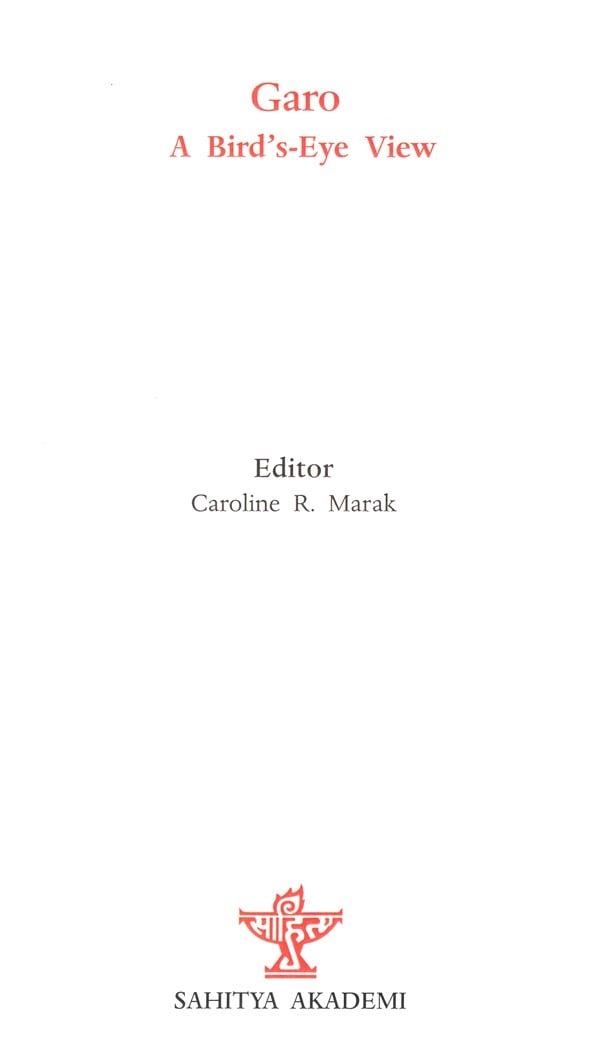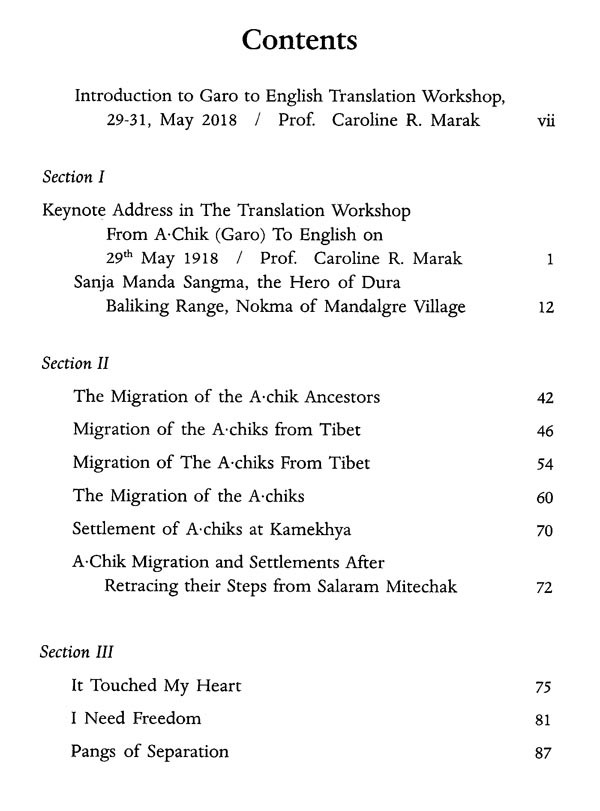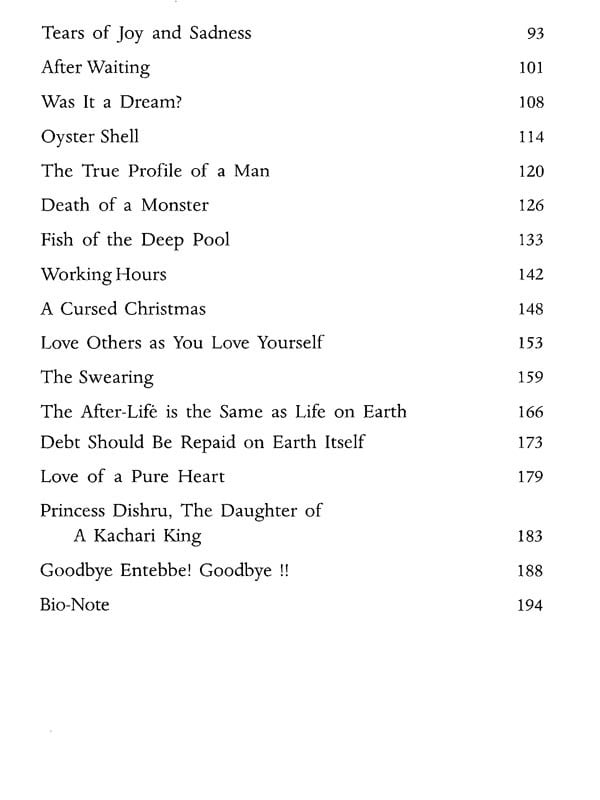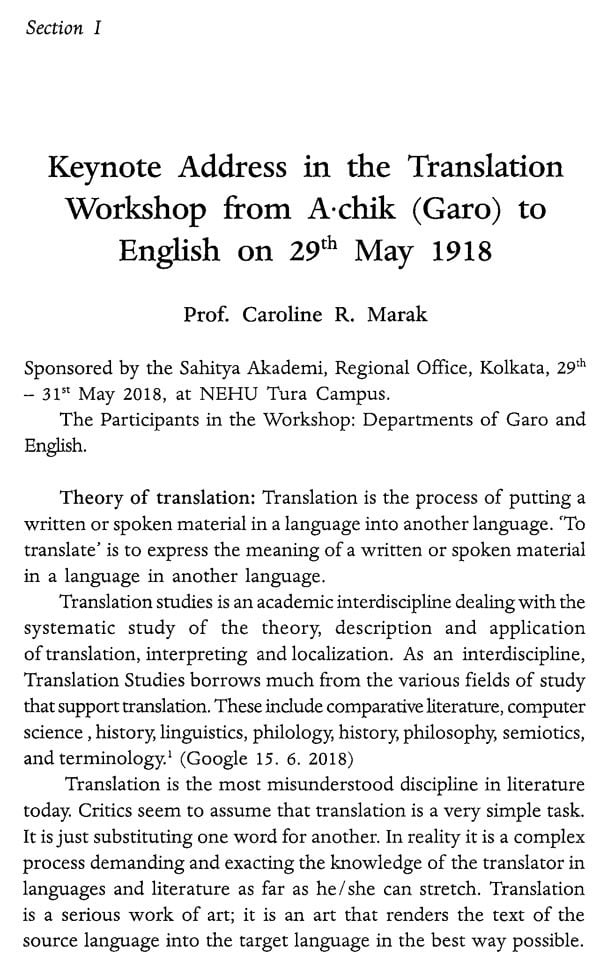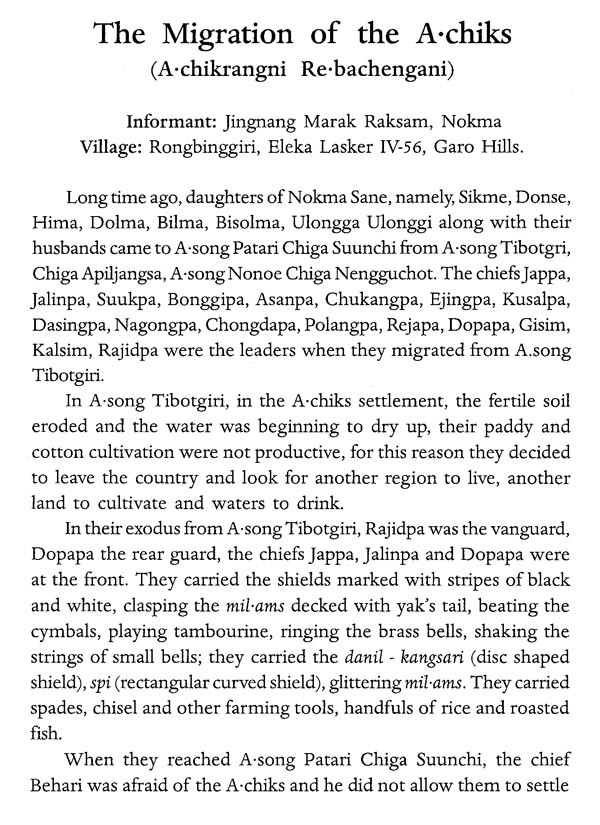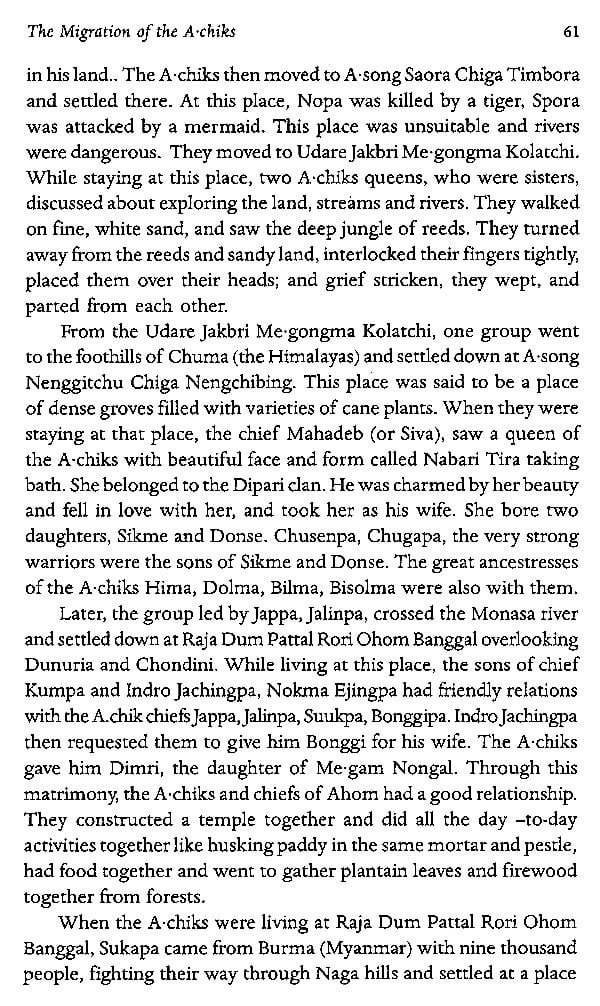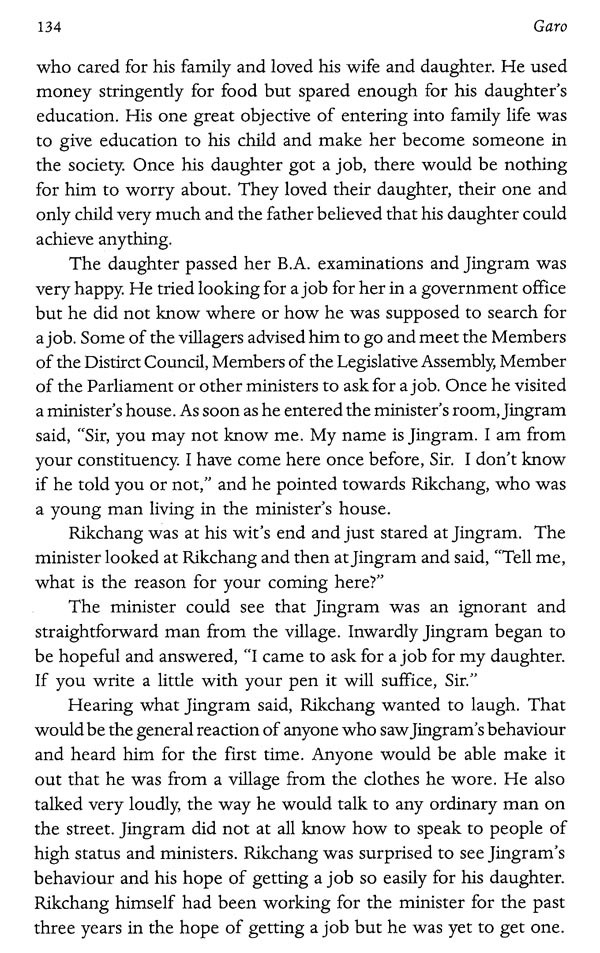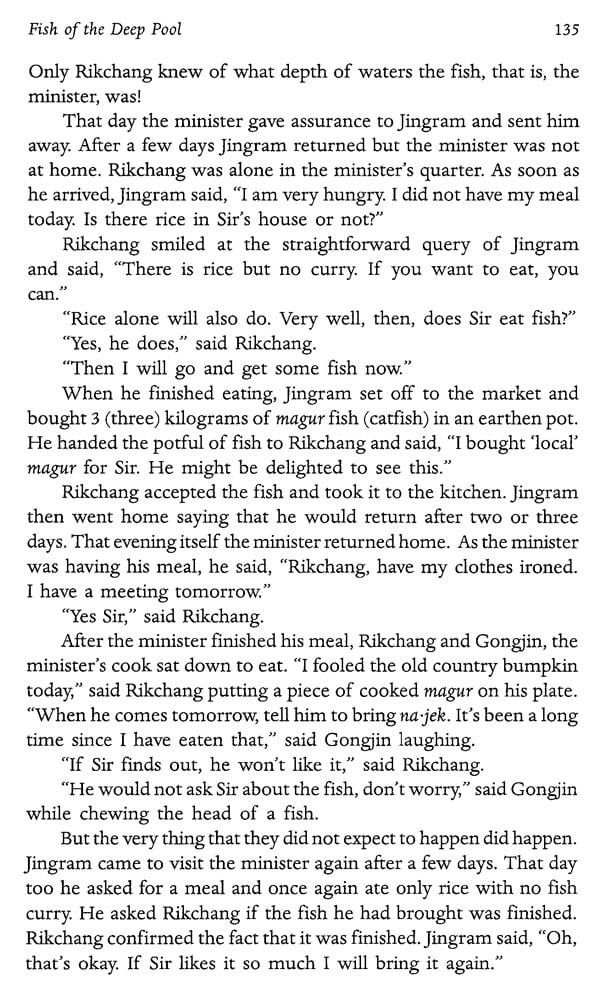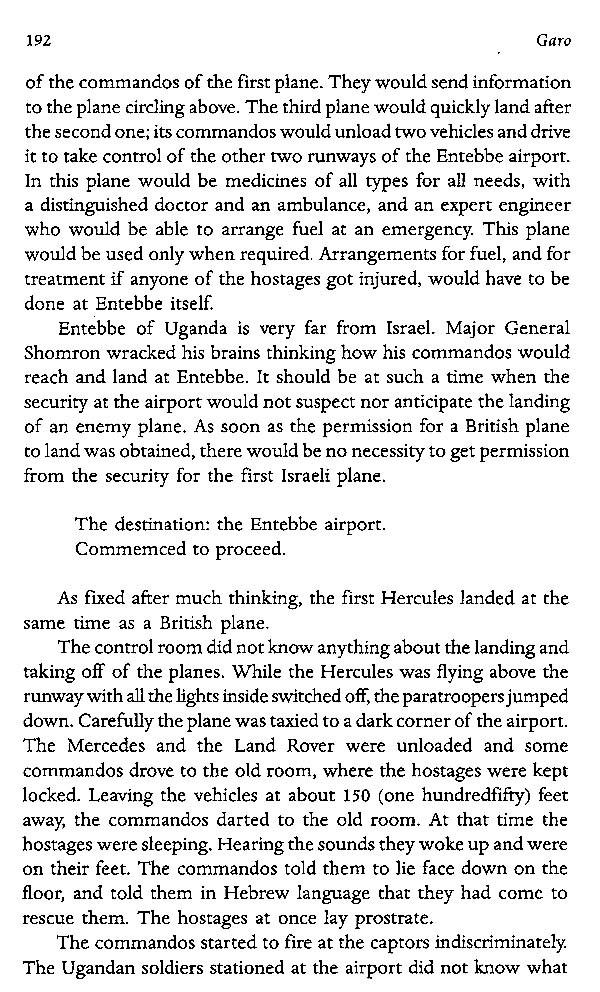About the Book The book contains translations of the oral and written literary works in Garo/A'chik language of Meghalaya. The translated materials form a small part of the literature of the Garo / A'chik people, but serve as a bird's eye view basically of the three periods in their history the distant past, the British period and the present. The section of the oral tradition covers the movement of the tribe from Tibet to India, to the Brahmaputra valley, dispersing to settle in the plains and hills, and concentrating in the western Hills of the Meghalaya State. It tells us about the conflicts, deprivations, the fight for survival as a group, and periods of prosperity. Groups' moving away in different directions divides close relatives, and the oral narratives give us an idea about the origin of the Garos, the Boros, the Rabhas who are ethnically and linguistically closely related and live next to each other at present.
The second part of the translation is on the life of the great patriot Sanja Manda Sangma and the opposition to the British occupation of the Garo land around 1867, giving an insight into the colonial policies and tactics. The third part consists of the creative works-short stories - of one of the most versatile writers among the A'chiks to date. This book is the outcome of the Garo to English translation workshop.
About the Author Caroline Raksam Marak (1945) is a former Professor & Head of the Department of Garo, North-Eastern Hill University, Shillong, Meghalaya. She was a member of the General Conference of the Sahitya Akademi. A few of her translations of Garo literature to English has been published by the Akademi. Some of her papers on literature, culture and studies on social issues have been published. Formerly serving as the Secretary, at present she is the President of the A-chik Literature Society, Tura, a pioneer literary organization of the A-chik (Garo) people. The workshops on traditional musical instruments and dances of the Garos organized by the Society at her instance led to the rediscovery and revitalization of the dying and neglected arts. One of her research and publication is on Ruga, a dialect/variety of Garo, which is no longer spoken. During the period of lockdown and unfavourable situations to hold regular conferences and writers' meets, she has participated and taken the initiative to organize talks, international seminars and meets to further the cause of language and literature. Her articles on the material culture of the Garo people have been published in the Marg magazine of the Marg Foundation, Mumbai.
Introduction Garo (exonym) has been entered so by the British for all official purposes, while the tribe calls itself A-chik or A-chik Mande or only Mande (autonym). As in many groups of people the world over Mande simply means a human being. In Bangladesh the community calls itself Mandi, the difference in the final vowel being on account of the A beng dialect spoken by the large population of the community in the neighbouring country. The people refer to their language as A chikku, the final syllable -ku meaning "language".
G. A. Grierson, the pioneering researcher on the languages of India in his monumental work Linguistic Survey of India (LSI) classified Garo as one of the Bodo group of languages of the Tibeto - Burman branch of the Tibeto-Chinese family of languages. Other languages in the Bodo group are Boro, Rabha, Mech, Koch, Dimasa, Tiwa, Kokborok, Deori and others. Of these, some varieties such as Wanang Koch, and Rangdani variety of Rabha are spoken in Garo Hills, and Maitori of Rabha is spoken in the area north-east of Garo Hills. Bodo settlements occur in the adjoining areas of Garo Hills in Goalpara, and north-eastwards.
While A-chik population is concentrated in the Districts of Garo Hills, a sizeable population occurs in the surrounding areas of West Khasi Hills of Meghalaya, Goalpara, Dhubri, Bongaigaon, Kamrup and Karbi Anglong Districts of Assam, and in Tripura. As mentioned above, A-chiks are spread in many areas of Bangladesh, in Mymensing District as far as Dhaka.
**Contents and Sample Pages**
